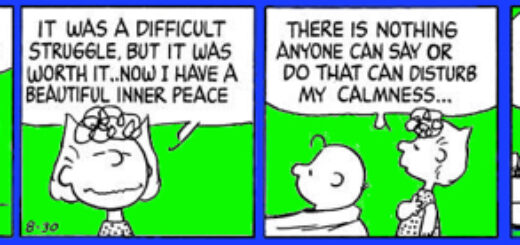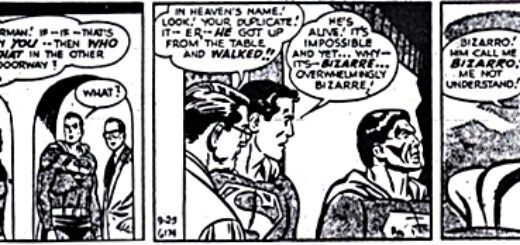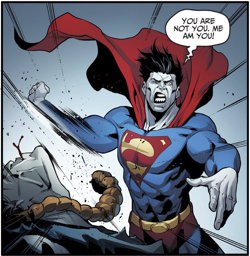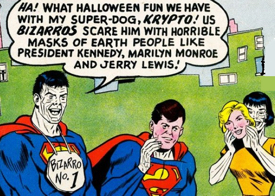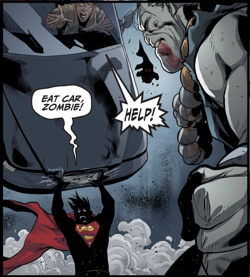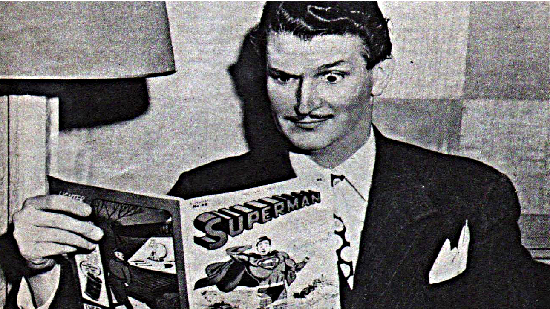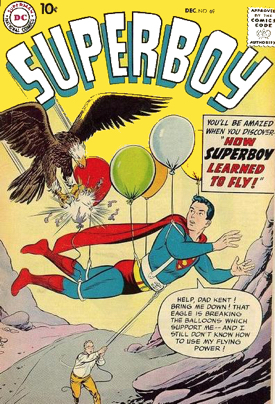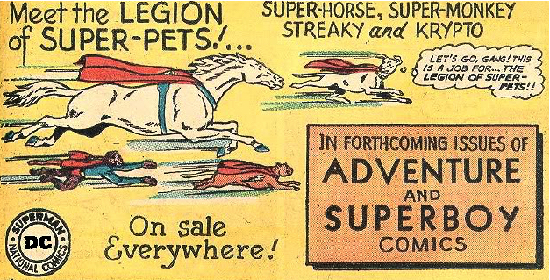Martha Thomases’ School Daze
The week after Labor Day is the traditional beginning of the school year. Yes, #NotAllSchools, but enough.
When I was in elementary school, the first day was a big deal. My mom and I had spent a lot of time over the summer selecting my new clothes, usually an activity that included lots of arguments. (I hated wearing uniforms at boarding school, but it did reduce the fighting at home.) On that first day I wanted to show off my favorite selections, so I usually spent all of my class time sweating through my lovely winter jumper with coordinating turtleneck sweater.
Naturally, I wondered how superheroes would fare. I don’t mean those lucky enough to have classes that catered to their specific mutations or skills, but regular school, with tiny milk cartons in the cafeteria and bullies at recess.
I remember Superboy and Supergirl stories from my youth where they would be stuck in class while their super-hearing picked up some disaster that needed their attention. They had robots available for such occasions, although I do not remember any stories in which those robots had to take tests or get punched in the face. Today, we can read about Moon Girl and her issues with being smarter than her classmates (as well as trying to keep a dinosaur secret). Her powers are the least of her problems.
As usual, I wonder about superheroes with more esoteric powers. Mind-readers like Saturn Girl could cheat on tests simply by barging into the thoughts of the teacher. She could also get completely icked-out simply by walking past the boys locker room… but that also happens to girls who aren’t telepathic.
Matt Murdock could avoid bullies by sensing when they were planning to punch him out. He could probably also tell when the lunch lady lost a hair (or worse) in his food. Matter-Eater Lad could avoid cafeteria problems altogether. He’d have no reason to fear mystery meat when the tray would be a satisfying substitute lunch.
Truly, there are few situations in which it is not amusing to imagine Matter-Eater Lad.
Individual problems and opportunities for individual students might present story opportunities, but the conditions of our schools, physically and structurally, are the real outrage. Public schools are constantly forced to do more with less. No matter how much money any particular municipality might budget towards them, an insufficient percentage trickles down to individual teachers in individual classrooms.
Even worse, there is increasing pressure on students to pass specific kinds of tests that purport to measure their learning but are more likely to measure their ability to take tests. Some groups want to eliminate arts education to focus on science, math and technology, as if math and science don’t benefit from people with artistic imaginations.
Children, even those without super-powers, are each unique. I know there are those who don’t like it when someone points out that everyone is special, but they are wrong. I learn at a different pace and in a different way than you do. Schools should take this into account. No, we shouldn’t lower standards and pass kids from one grade to the next purely for social reasons. Diplomas should indicate a level of accomplishment, and we should have a nondiscriminatory way to measure this… although I don’t know what this would be.
I was always good at taking standardized tests, usually placing in the 99th percentile. This helped my parents with their bragging rights but did nothing to indicate that, for example, I was terrible at memorizing, especially foreign language vocabulary words. If there had been a way to catch that earlier, I might be able to spend more time in Paris.
My point (and I do have one) is that schools don’t have to be places of boredom and terror. We could treat our kids with more love and respect, appreciating their differences in a way that celebrates their victories and nurtures them when they fail.
I thought of this while listening to Dean Haspiel give the keynote address at the Harvey Awards last weekend. Dean talked about the challenges of being a freelance artist in a culture that values neither art nor freelancers. After a lifetime in New York working with colleagues in a studio in a building with loads of other artists, Dean admitted that he is considering leaving.
New York City drew me here because it was a place where one could meet artists and writers and rock stars and poets and radical activists. It was a great place to raise my kid, who went to public school with kids who spoke Spanish, Russian, Chinese and lots of other languages at home, and who might live in shelters or brownstones, projects or penthouses.
That doesn’t happen anymore.
Those of us who value each other’s special abilities should consider finding a town in decline and moving in en masse. We could work together to provide the services we want, and we could live close enough to each other so we could ease the trauma of moving. We could volunteer at libraries and schools and summer camps so all the kids who feel like mutants would know we think that’s a good thing.
And we could install air-conditioning in the schools so that, if I show up on the first day, I can wear my best new outfit.

